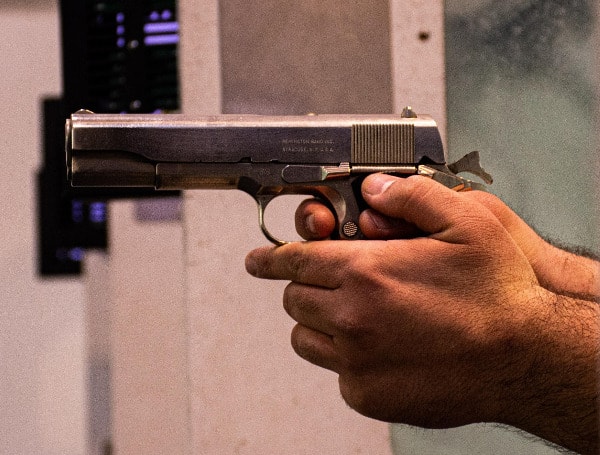A federal appeals court on Tuesday considered the constitutionality of a Florida law that prohibits individuals under the age of 21 from purchasing rifles and other long guns. The law was enacted in 2018 after the tragic mass shooting at Parkland’s Marjory Stoneman Douglas High School, where 19-year-old Nikolas Cruz used a semiautomatic rifle to kill 17 people. While federal law already prevents people under 21 from purchasing handguns, Florida extended the restriction to include long guns.
The National Rifle Association (NRA) challenged the state law, but a three-judge panel from the 11th U.S. Circuit Court of Appeals upheld it. On Tuesday, the full court heard arguments in an “en banc” hearing in Atlanta following recent U.S. Supreme Court rulings related to gun rights.
READ: Florida Rep. Byron Donalds Throws Down With CNN’s Jim Acosta Over Trump’s Remarks
John Parker Sweeney, representing the NRA, argued that the age restriction violates the Second Amendment, as it was not part of the historical tradition at the time the Constitution was adopted. He claimed that people under 21 in the 18th century were still able to purchase firearms, even if other common law restrictions limited their legal rights.
However, some judges, including Judge Robin Rosenbaum, pointed out that during the founding era, those under 21 had limited legal rights and often relied on their parents to make purchases, including firearms. Rosenbaum emphasized that, historically, young adults were supervised by parents or guardians when handling firearms, particularly in the militia.
Florida’s Deputy Solicitor General Christopher Baum defended the law, arguing that it aligns with the historical tradition of regulating firearms and reflects modern concerns about public safety. He cited other age restrictions, such as those on alcohol and tobacco purchases, as examples of similar regulatory decisions.
READ: Florida Republicans Overtake Democrats In Early Voting As Election Day Nears
Judge Barbara Lagoa and Judge Robert Luck, both former justices of the Florida Supreme Court, questioned the justification for treating 18-to-20-year-olds as adults for some purposes, like renting an apartment, but not for purchasing firearms. Lagoa pointed out that Florida law does not regulate parental involvement for other adult responsibilities, making the firearm restriction appear inconsistent.
The case hinges on how courts should apply historical interpretations of gun laws, particularly in light of recent Supreme Court rulings, including New York State Rifle & Pistol Association v. Bruen, which set a precedent that modern gun laws must align with historical traditions of firearm regulation. The court’s decision could have significant implications for age-related firearm regulations across the country.
Please make a small donation to the Tampa Free Press to help sustain independent journalism. Your contribution enables us to continue delivering high-quality, local, and national news coverage.
Android Users: Download our free app to stay up-to-date on the latest news.
Connect with us: Follow the Tampa Free Press on Facebook and Twitter for breaking news and updates.
Sign up: Subscribe to our free newsletter for a curated selection of top stories delivered straight to your inbox.
